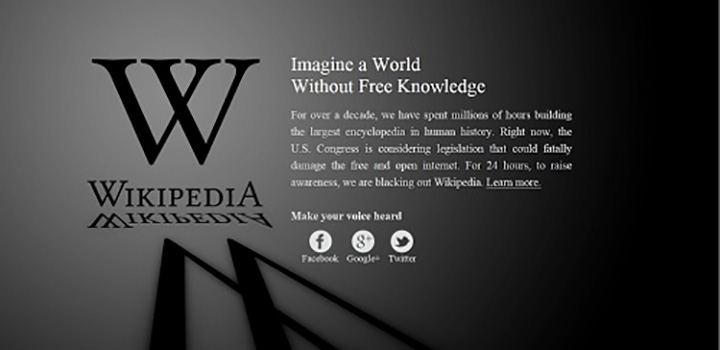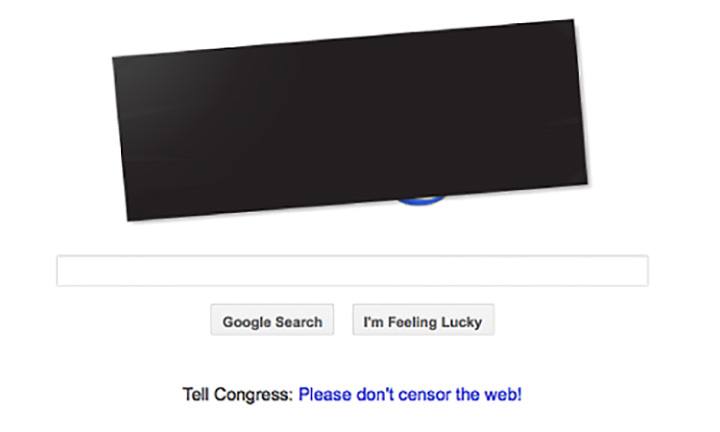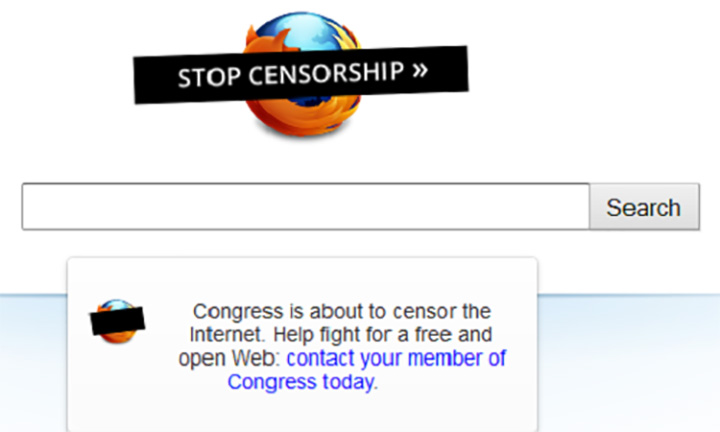Can Anyone Still Remember When The Internet Fought For Freedom? The 5th Anniversary of SOPA And PIPA Protests
The blackout page of Wikipedia as protest against SOPA and PIPA, January 18 2012 (source: Wikipedia)
On January 18, 2012 there was a series of protests around the internet. Content creators, Internet companies and users banded together to voice out their absolute disapproval of two proposed laws in the US Congress: The Stop Online Piracy Act and the PROTECT IP Act.
These two laws were proposed as an answer to deemed prevalence of copyright infringement (also known as “piracy”) from websites outside the US. But the Internet also saw its potential to censor legal content, especially political ones. Both bills were introduced in 2011, with PIPA being a re-write of the failed COICA, introduced in 2010. Supporters of these laws were media companies, organizations and people who feel that there needs to have bigger laws against copyright infringement and illegal sales of products and services (like medicines, branded clothing and luxury items like cosmetics). This is especially since most of the infringement happens outside the US and, therefore, outside their jurisdiction.
Google Doodle’s SOPA PIPA page(source: Wikipedia)
Both proposed laws met with resistance as both contain provision allowing the blocking of websites via the Domain Name System. If a user entered the address of a blocked website, it will be like that website doesn’t exist at all. SOPA even has the power to cut-off a site’s ads by only sending a notice. The opponents are tech and Internet companies, content creators like Wikipedia, software makers, free speech organizations, lawmakers and other websites.
As an example of the severity of these laws picture a blog where a fan used a picture of some US artists that he or she likes. The artist in question now has the power to have that site taken down and make it like it never existed and without due process on accounts of infringement. So much so that Google’s policy director, Bob Boorstin, stated that a site like YouTube supporting user-generated content “would just go dark immediately” to comply with the legislation.
And because of this a number of websites and Internet users protested against the two laws. Several people and organizations criticized the laws for their possible effect on free speech and how they are ambiguous on how to consider a site as infringing.
Mozilla’s Censorship Doodle(source: Wikipedia)
So finally, on January 18, after a series of protests in late December a number of websites, like Wikipedia and Google, partially made their contents unavailable to the public. Some created art, like Google using their front page. It was reported that there were 75,000 websites that participated in the protest. One hundred sixty-two million (162,000,000) people viewed Wikipedia’s blackout page, of which 8 million of them looked up Congressional representatives while 12,000 people posted comments on Wikimedia Foundation’s blog post announcing the blackout. There were also 4.5 million people that signed Google’s petition against SOPA and PIPA.
In the end six of the senators who backed PIPA withdrew their support for the bill. By the next day, that number rose to 18 including 11 of the original sponsors of the law. Finally the initial floor voting of both laws have been postponed. A New York Times report finally said that the two laws have been shelved.
But the fight didn’t stop there. According to the Electronic Frontier Foundation (EFF) there are three other similar laws and trade agreements like the Anti-Counterfeiting Trade Agreement (ACTA), which was eventually rejected by the European Parliament, the Trans-Pacific Partnership (TPP), which is reportedly going to be dismantled by POTUS Donald Trump, and the Special 301 Report.
And so right now there hasn’t been any new ones apart from those three. And with one shelved, another will be trashed by Trump, most of the Internet hopes that there won’t be anything new like them in the future.


